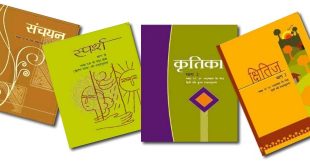9th CBSE Science Annual Examination Question Paper (2019-20)
Time: 3 Hrs.
Marks: 80
Class: 9th
Date: 15/01/2020
Subject: Science
General Instructions:
- All questions are compulsory.
- The question paper comparison of three sections A, B & C.
- Internal choice is given in section – B & C only.
- The question paper consists of 36 question into three Section – A, B and C. Section – A comprises of 20 objective type question of 1 mark each. Section – B of 10 short answer type questions of 3 marks each. Section – C comprise of 6 long answer questions of 5 marks each.
9th Science Annual Examination: Section A
Multiple choice questions
Question: 1. Newton’s second law of motion helps to determine
- Magnitude of force
- Definition of force
- Magnitude of velocity
- Definition of velocity
Question: 2. Which of the following is non fluid?
- Solid
- Liquid
- Gas
- Plasma
Question: 3. Vectors can be defined as
- Diseased plants
- Infected person
- Micro – organism which cause many diseases
- Animals which carry the agents form diseased
Question: 4. What is the atomicity of phosphorus?
- 1
- 2
- 3
- 4
Question: 5. A decibel is a
- Musical instrument
- Musical note
- Measure of sound level
- Noise meter
Question: 6. Which group of animals use hard calcium carbonate structure as skeleton?
- Arthropoda
- Protector date
- Nematoda
- Echinodermata
Question: 7. Which of the following is a true fish?
- Star fish
- Cattle fish
- Jelly fish
- Hippo-campus
Question: 8. A model of atom similar to that of Christmas pudding was proposed by
- Rutherford
- Dalton
- Thomson
- Bohr
Question: 9. A cell was swell up if placed
- in – isotonic solution
- in hypo-tonic solution
- in hyper-tonic solution
- in concentrated sugar solution
Question: 10. A person is living is an overcrowded poorly ventilated house. He is most likely to suffer from
- Water Borne diseases
- Cancer
- Air borne
- AIDS
Fill in the blanks:
Question: 11. Xanthium and parthenium are commonly known as ______.
Question: 12. Addition of HCL to iron evolves _____ gas which burns with a _____ sound.
True / False
Question: 13. One mole of hydrogen contains 6.022 x 10²³ atom of H. ( )
Question: 14. Ultrasonic waves are also known as supersonic waves. ( )
Assertion – Reason Question
Note: Read the assertion and reason statements and marks the correct option out of the following options.
- It both assertion and reason are true and reason is the explanation of the assertion.
- If both the assertion and reasons are true but the reason is not correct explanation of the assertion.
- If assertion is true but reason is false.
- If both assertion and reason are false.
Question: 15.
Assertion: Value of acceleration due to gravity does not depend on the mass of the objects in which force of gravity acts.
Reason: Acceleration due to gravity is same as the universal constant of gravitation.
Question: 16.
Assertion: There are six macro-nutrient while there are seven micro-nutrients.
Reason: C, H, O, N, P & K are macro-nutrients.
Question: 17. What is the SI unit of density?
Question: 18. Where is value of ‘g’ maximum and where minimum on the earth’s surface?
Question: 19. Name two plants which is used as bio pesticide in organic farming.
Question: 20. Define one Kilowatt hour.
9th CBSE Science Annual Examination 2019-20: Section B
Question: 21.
What management practices are common in dairy and poultry farming?
OR
What are the desirable characters of bee varieties suitable for honey production?
Question: 22.
- What do you mean by free fall?
- Write the equations of free fall.
Question: 23.
- Define uniform acceleration. What is the acceleration of a baby moving with uniform velocity?
- A particle move over three quarters of a circle of radius r what is the magnitude of its Displacement.
OR
- A train starting from rest moves with uniform acceleration of 5 mts². Find its velocity when it has traveled a distance of 1 Km.
- Give one difference between Distance and displacement.
Question: 24.
- Give one examples for each of the following
(i) A cute disease (ii) Chronic disease - Differentiate between infectious and non infectious diseases.
Question: 25.
Give one word answer of the following.
- Organelle containing chlorophyll
- Living matter of the cell
- Cell without membrane bound nucleus
OR
Identify the type of tissue in the following.
Skin, Bark of True, Bone, Living of Kidney Tubule, Vascular bundle
Question: 26.
- Draw a neat diagram of a Hydra
- Name the group of animals it belong to
- Name one species of this group which lives in colonies.
Question: 27.
- Write the full form of IUPAC.
- Hydrogen and oxygen combine in the ration of 1 : 8 by mass to form water. What mass of oxygen gas would be required to react completely with 3 g of hydrogen gas.
Question: 28. Calculator the molecular mass for each one of them
- KOH
- CaCO3
- NaOH
OR
Which has more number of atoms?
100 g of N2 or 100 g of NH3.
Question: 29.
- Explain Bohr and Burry rules for distribution of electrons into different shells.
- Draw the electronic structure of elements X with atomic number 17 and element Y with atomic number 16?
Question: 30. Classify each of the following as a physical or a chemical change. Give reasons.
- Drying of ‘shirt in the sun’
- Churning of milk cream to get butter
- Burning of Kerosene in a lantern
9th Science Annual Examination: Section C
Question: 31.
- What is meant by buoyancy? Why does an object float or sink when placed on the surface of a liquid?
- Describe a simple activity to prove that objects of density less than of the liquid float on it.
- Name the force acting on a body when it is fully or partially immersed in a liquid
Question: 32.
- Define work. Write its SI unit.
- What is commercial unit of energy? It is equal to how many joules?
- An electric oven is rated 2500 W. How much units of energy does it use in 4 hours?
OR
- Derive an expression to calculate the potential energy of a body.
- Name the type of energy possessed by a raised hammer
- An object of mass 5 kg is dropped from a height of 10 m. Find its kinetic energy when it is half way down.
Question: 33.
- How is the valency of an atom related to its electronic configuration.
- Write the electronic configuration of the elements whose atomic numbers are 7, 17 and 19 respectively.
- What is the similarity in the electronic structure of the following set of atoms
(i) Lithium
(ii) Sodium
(iii) Potassium
Question: 34.
- What do you understand by nomenclature? Who introduced this system?
- What is haemocoel? Which group of animals have haemocoel?
- Some reptiles live in water and yet lay eggs with tough covering unlike the amphibian why?
OR
Explain giving reason.
- Balanced diet is necessary for maintaining healthy body.
- Heath of an organism depends upon the surrounding environmental condition.
- Our surrounding area should be free of stagnant water.
- Social harmony and good economic condition are necessary for good health.
- Acute Disease do not harm any organ where as chronic diseases do.
Question: 35.
- Describe any three ways in which water is important for the activities of living things.
- Draw a labelled diagram to show water cycle in nature.
- What are the consequences of Global warning?
Question: 36.
- State the universal law of gravitation.
- What is the importance of this law in understanding the nature?
- Mass of an object is 20 Kg. Find its weight on the earth. What will be its weight when measured on the surface of the moon?
OR
- Identify in the situations given below where the objects making a uniform circular motion.
(i) A car turning around a curve with uniform speed of a car going up hill.
(ii) Motion given to a discuss by an athlete before releasing it or motion of discuss when athlete release it. - A cyclist complete 5 rounds of a circular track of radius 21 m in 12 min. Calculate his speed.
- An artificial satellite moves around the earth with a velocity of constant magnitude. Still its motion is said to be an accelerated motion why?
 Class Notes NCERT Solutions for CBSE Students
Class Notes NCERT Solutions for CBSE Students





